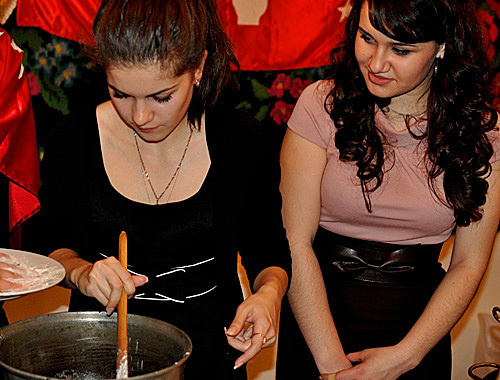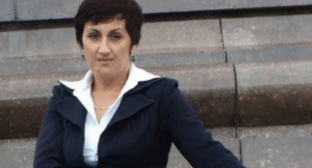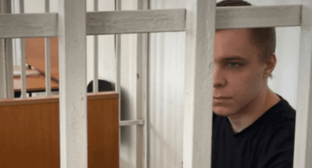
15 November 2010, 19:00
"Face to Face" lecture centre in Moscow held a meeting devoted to Abasin people
On November, 14, a meeting devoted to the culture of the Abasin people was held in one of the Moscow restaurants within the framework of "Face to Face" lecture centre. Bella Shahmirza, organizer of the meeting, said that over 100 people identifying themselves as members of more than 20 ethnic communities were present.
The Abasins (naming themselves as Abasa) is a nationality residing in the Russian Federation. They live in Karachaevo-Cherkesia and in the East of Adygeia republics. They belong to Balkan-Caucasian race of the big Caucasoid race. They speak the Abasian language of Abkhazian- Adygei group of North-Caucasian family.
"This time we did not talk of the history of the Abasin people but our theme was focused on the closeness the Abasin, Abkhazian and other Caucasian peoples' culture", Bella Shahmirza told a reporter of "Caucasian Knot".
The party began with the familiarity with the Abasin flag, a red colour cloth with an image of an open palm in the center symbolizing peace and pure intentions. The palm is surrounded by five stars according to the number of Abasin auls: Psizh, Kubina, Inzhich-Chukun, Elburgan and Kara-Paago.
The hosts of the party, Zurab Agirbov, post-graduate of the Moscow State Institute of International Relations, and student Zarema Shebzukhova told the guests about the features of the Abasin Language which numbers 72 sounds and has several words consisting of consonants only. According to the hosts, a child aged under three only can be taught the Abasin language. Later on age-related changes take place in human organs of speech which do not let one pronounce the sounds correctly.
This short overview of Abasin phonetics was followed by a master-class of cooking dzirdza sauce and chash cakes in which nor only girls but guys too took interest.
Young singers sang Abasin songs during the meeting. All those present were also suggested to learn dancing "Koshara" traditional dance.
Within the framework of the lecture center one could not only get familiar with the Abasin cuisine and dances but also talk to one's neighbours at table for an Abasin who could tell the representatives of other peoples about his or her nation was present at each table.
"Caucasian Knot" has already reported that on November, 7, a meeting devoted to Kabardinian people's culture was also held within the boundaries of "Face to Face" lecture center.
The center had formerly arranged a series of meetings organized by students of Moscow State University from Ingushetia and representatives of Ingush diaspora in Moscow.
Author: Elena Khrustaleva Source: CK correspondent




